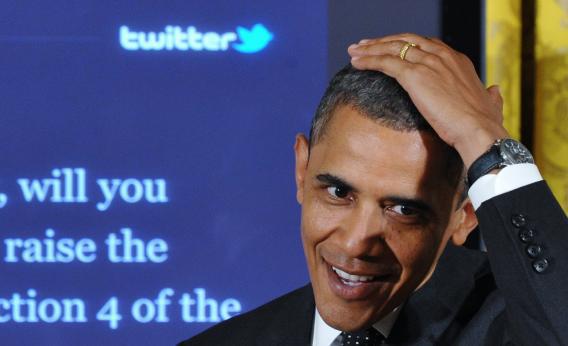This week Twitter launched its Twindex, a political tracker that gives a daily score to Mitt Romney and President Barack Obama.
With the help of more traditional polling groups from both sides of the aisle, the social media company plans on leveraging its giant geyser of data, plus algorithms that try to analyze the “sentiment” of tweets which seem to be about each candidate, to handicap Romney and Obama. Today, Obama’s score is a 51, while Romney’s is a 26 (out of a possible 100) And while a sitting president most definitely has a huge advantage, it’s maybe worth noting that POTUS has more than 18 million followers while Romney has about 759,000.
Judging a candidate’s chances among voters by methods other than merely calling likely voters isn’t all that new—most good political reporters looking at national races regularly check the prediction market Intrade. But will a measurement of popularity on Twitter accurately predict the outcome in November? It’s difficult to tell. In the midterm elections of 2010, Facebook looked at a slightly less “real time” metric: likes. Of the 118 races in Congress they tracked , 77 of the winners had more “likes” than their opponents. Not a sure-thing metric by any means, but one that suggests some accuracy.
Twitter’s bullish about that accuracy increasing, and the company has good reason to be politically involved. When Twitter was just getting started in 2008, its hands-down busiest day was America’s Election Day, when 1.8 million tweets were sent. Now, that number of tweets is sent every 6 minutes.
You could once make a convincing argument that Twitter has thus far been a venue for a narrow audience—young people, liberal media types, etc. But that’s changing. While the announcement that Twitter recently crossed the 500 million user mark has been disputed, the company’s user numbers have still skyrocketed since the last election. Perhaps even more interestingly, recent studies about access to the Web suggest that the race-related digital divide is shrinking, and that people who engage in politics on social media are much more likely to engage the voting booth.
Polling is a complex business, and even knowing what Twitter’s relatively narrow base of users are going to do on Nov. 6, it’s not going to put Nate Silver out of business any time soon. Could the Twindex call the election accurately that day? I put their chances at 50/50.
